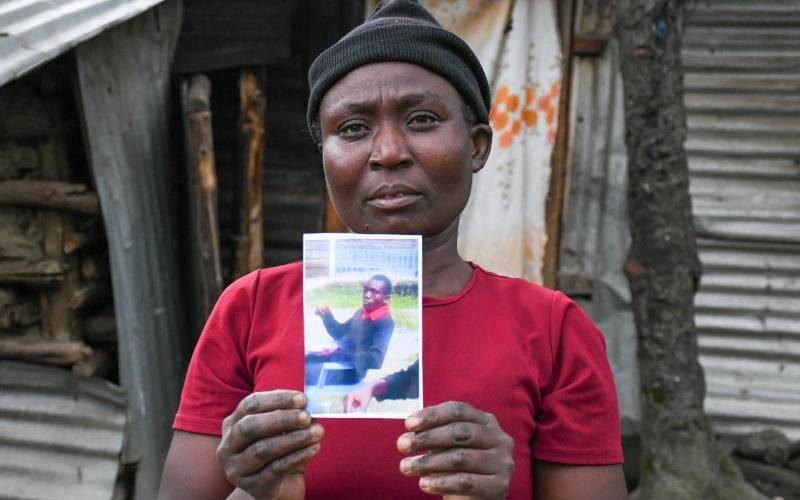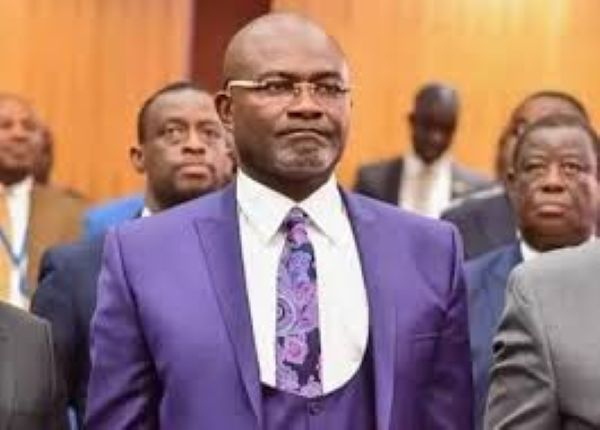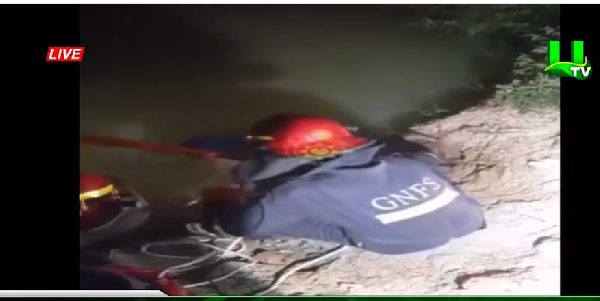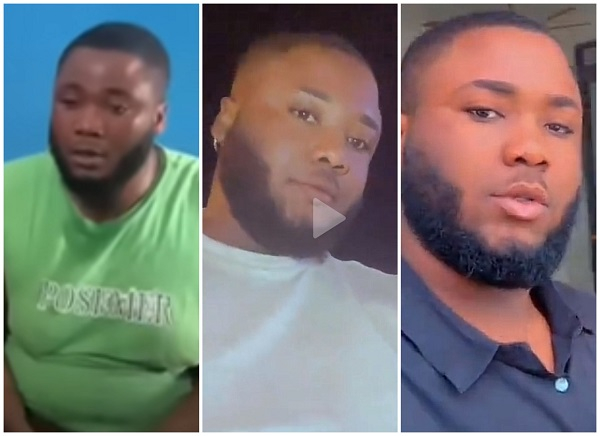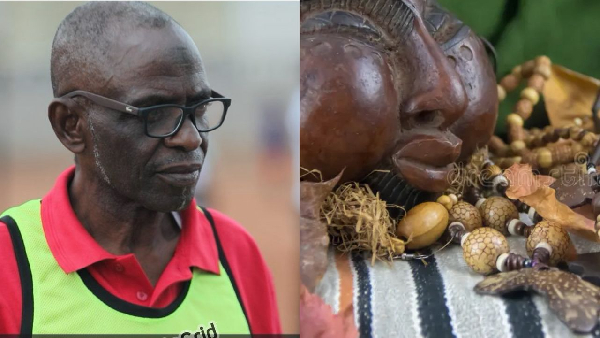Delayed justice, insensitive State add more pain to grieving parents
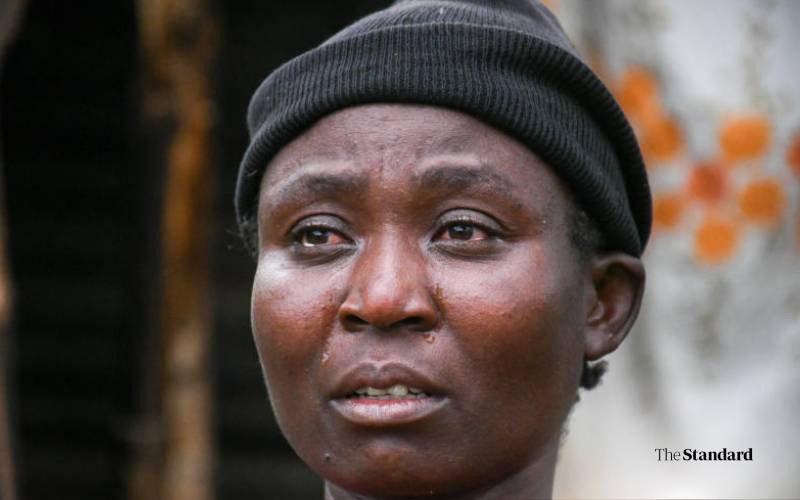
[Kipsang Joseph, Standard]
One year after the tragic deaths of Gen Z protesters during Anti-Finance Bill demonstrations, the families of those killed by police gunfire are still grappling with grief and a justice system that has offered little solace.
In Nakuru East’s Kabachia area, Maria Shikwe mourns her autistic son, Austin Onyisa, who was shot dead exactly one year ago today.
Onyisa, described by his mother as a calm and hardworking young man, was not a protester but a bystander caught in the chaos while searching for his younger brother.
“I lost my firstborn son. He was killed without committing any crime,” she says.
Shikwe had sent the 18-year-old and his brother on an errand. When her second-born son, also autistic, went missing amid the protests, she instructed Onyisa to look for him near the State House while she searched elsewhere. As evening fell, Onyisa failed to return, prompting a frantic search.
“I visited four hospitals and police stations, but I couldn’t find him,” Shikwe recalls.
The next day, she received the devastating news: her son’s body lay in the county mortuary, a victim of a fatal police shooting.
“To this day, I wonder what happened. He wasn’t a protester. I sent him to find his brother, and now he’s gone.”
The Independent Policing Oversight Authority (IPOA) is still investigating Onyisa’s death, but progress has been slow. Shikwe, who feels powerless to provide the witnesses IPOA demands, is distraught for a lack of closure.
“They keep asking for witnesses, but how can I find them? My son was calm, hardworking, and listened to my advice. He didn’t deserve this,” she says.
Following his father’s death, Onyisa had assumed many roles, including caring for his siblings and helping with household chores like cooking, washing dishes, and farming.
His love for reggae music brought joy to the home, and his absence has left a void. “The house is lonely and silent now,” says the mother, noting the distress her surviving autistic son experiences when he sees Onyisa’s photos.
At the Lang’ata Cemetery in Nairobi, Joseph Nyangare tends to the grave of his 31-year-old son, Charles Osewe, another victim of police brutality. Osewe was arrested on June 25, 2024, during the #OccupyParliament demonstrations and disappeared for nearly three months.
Stay informed. Subscribe to our newsletter
His father, frail and reliant on crutches, discovered Osewe’s body months later on September 13 at the Mama Lucy Hospital. Hospital records say Osewe was admitted just before midnight on June 29, 2024, listed as a “fatal accident victim,” and died the following day. The circumstances of his death remain unclear, fueling Adero’s anguish.
“I worked hard selling newspapers to educate him. Now, all I have is a dead son,” he says.
Adero, who describes Osewe as not only a son but also a friend and roommate, struggles with the emotional and physical toll of his loss.
“I’ve lost my only hope,” he says, wiping tears that clouded his vision.
Dreadful call
The silence from authorities has deepened his despair, with no answers to ease his pain. Osewe’s kindness lingers in small gestures, like the sandals he gifted his father, which Adero still wears.
“I gave his belongings to his friends to ease the pain, but it hasn’t gone away,” he says.
Hannah Wanjera, another grieving mother, lost her 21-year-old son, Evans Kiratu. Kiratu was struck by a teargas canister in the groin area and died shortly after being rushed to the Kenyatta National Hospital.
“That call broke me,” recalls Wanjera, her voice cracking.
Like Shikwe and Adero, she has waited in vain for justice. “I was called to court once in February, but there’s been little progress since. Only justice will give me peace.”
Wanjera believes the police used excessive force against peaceful youths demanding a better future. “Our children were asking for their rights. There’s no law that justifies killing them,” says the mother, who sees no value in President William Ruto’s apologies.
“It’s too late. The apology can’t fill the void my son left.”
The pain of these families reflects a broader crisis. According to an IPOA report, 60 deaths linked to police brutality during the protests are under investigation, with 22 cases completed, 36 ongoing, and two before the courts.
Nairobi, Eldoret, Kisumu, Nakuru, and other regions recorded significant violence.
Additionally, 233 injury cases were reported, with 191 still under investigation. IPOA cited non-cooperation from police and witnesses as a major obstacle, delaying justice for families and survivors like Ian Keya, who was shot outside Parliament on June 25.
Keya, a graphic designer, spent three months in the hospital and lost his job due to his injuries.
“I was shot in the back, and the bullet hit my spine. I bled a lot,” he says.
Unable to afford medical bills or life in Nairobi, he returned to the village, where he continues to battle infections and financial strain.
Haki Africa Executive Director, Hussein Khalid, criticized the government’s failure to acknowledge the killings.
“Justice begins with recognising the lives lost. Police who fired on unarmed protesters must face court, and families deserve compensation,” he said.
Despite President Ruto’s January statement promising investigations into “any criminality,” families see little progress. “Words without action are meaningless,” says Adero.
For Shikwe, Wanjera, Adero, and others still mourning the unnecessary deaths, the memories of their loved ones — Onyisa’s reggae tunes, Kiratu’s laughter, Osewe’s kindness — linger painfully.
As investigations stall and accountability remains elusive, their grief deepens, a reminder of a nation still reckoning with the cost of its unrest.
“Continue to rest in peace, son,” whispers Shikwe. “We miss you, and we’ll meet again one day.”








